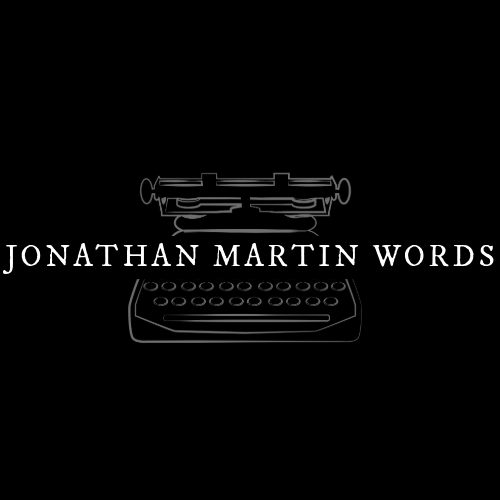
the city beneath the sea (a song of descent).
I remember the first time I came to New Orleans in the distant way you remember some near forgotten dream. I remember her like a ghost, like a shadow. I remember the feel of her in my body more than any particular image of her in my head. I was 14 years old, and the occasion, ironically enough, was our the bi-annual meeting of our conservative Pentecostal denomination. Even now it’s hard to imagine the people who populated my childhood walking those dreamy, steamy streets.
The air felt full of sex and saltwater. Church of God preachers in their suits and ties and ladies in their long Sunday dresses were walking down Bourbon Street on their way to worship at the Superdome. Pentecostals, historically, are misfit people, products of the kind of sweaty spirituality that could only be given birth on the wrong side of the railroad tracks. But I would have never known how to put the bodily, ecstatic worship of the Pentecostals with the kind of sensuous delight offered on Bourbon Street. The churches I grew up in, like New Orleans, had a penchant for colorful characters that seemed to walk out of a Flannery O’Connor short story, the fluid, free-flowing improvisation of jazz music, loud clothes and a carny atmosphere. But the sacred and the secular were not on speaking terms; they were as distant as Jerry Lee Lewis from his infamous cousin, Jimmy Swaggart.
I still remember watching the pack of preachers in front of me walk past a stand on the right selling novelty ties made to look like penises (which instinctively seems like it should read “peni”). There was a store on the left where the maniquens were decked out in an assortment of vinyl, leather and lace. Walking past the seedy club across the street advertising women and men performing “love acts” with each other, I felt the sea in me stir — here in the city beneath the sea. Hot damn…it was exciting! And terrifying. I cut my eyes away quickly to the dirty concrete beneath my feet, scared to death by the city and my own longing. I walked the French quarter as a stranger, just a pilgrim passing through, on my way to the Superdome, where the saints were marching in, a little awkwardly — and hopefully one day to heaven. I walked the street as I walked the world so much of my life — as a bystander, a spectator, not a citizen of the parade.
Looking back, I never really learned how to be at home in either world, because I never learned how to be at home in my own skin. I longed for the ecstasy around me in the tent revival every bit as much as I longed for the ecstasy around me on Bourbon Street, but lived too much in my head to get down into my soul and my body. I was stuck in my mind and on the surface of things. In both places, I was too afraid and too self-conscious to get lost in the music. I believed in all of the Pentecostal business. I wanted the jazz in me, the dance in me, the life in me. The life Jesus talked about when He said that “out of your belly will come streams of living water.” God have mercy, I wanted the life that could only be lived from my belly. Then and now, I want to howl; I want to crackle, I want to rumble. I want to talk in tongues.
But then, I walked the streets of my own longing, an insulated boy. Twenty-two years later, I walk down Bourbon Street on a clear December morning. I taste the boozy, swampy smell in the back of my throat. The daylight settles in the French Quarter like a hangover, it feels less like today than the morning after. The city is coming awake like a slow storm rising. There’s a jazz band setting up on the sidewalk just ahead, and from a distance I hear a trombone playing outside the St. Louis cathedral. A man in a suit smoking a slim cigarette approaches when I walk past the strip club: “Come on in…we’ve got cold beers and warm nipples inside!”
I cut up St. Peter St. to get to the cathedral. There are folding tables set up just outside offering palm readings from voodoo spirit guides. As I step through the heavy doors, the smell of sex gives way to Spirit, and I effortlessly slip into the wonder. I walk, trance-like, to the third row on the right, feeling my soul already finding sanctuary in the reverence. Kneeling, I begin to pray through my beads, taking slow, deep breaths in between the Psalm I’m meditating on. St. Louis Cathedral is in the middle of the carnival, the way God always is.
Melting into the presence, awareness creeps through my very bones, and I know God is not only in this place, but all the places I walked past to get here. God in the St. Charles street car I rode in on, in the old black man in the gold and black Saints toboggan sitting beside me; God in the white man with beady eyes in the polyester suit, summoning the tourists into the cathedral with no windows, on their own search for transcendence. God in the lady with the dreads reading Tarot cards just outside the entrance to the church; God in the dazzling art that climbs all the way onto the roof of the cathedral. In the decadence and in the piety, Love itself is sustaining us, making us exist. “In Him we live, and move, and have our being,” the apostle Paul said. In the breathing, my soul knows again there is nowhere God is not. Pressing softly into the divine, all the dualisms are dissolved. There is no us and them, no sacred and profane. There is the Love that exists at the center of things, and we, like sheep, stumbling into or out of awareness of the One who calls us into existence.
What better place to learn this than the city beneath the sea? New Orleans knows that sex and spirituality, voodoo and Catholicism, are two sides of the same mystery. She knows that these little humans all want to get lost more than get found, to drift into a mystery larger than themselves. “Every man knocking on the door of a brothel goes looking for God,” G.K. Chesterton said. She knows that the ordered world is an illusion, so the things we keep under the surface she puts out on the street. She knows that whatever cathedrals we wonder into pay homage to, whether the gods on the wall are Jack Daniels or Jesus Christ, we are all looking to let go. We’re all looking to lose ourselves, into the night and into the wonder. Deep down, we all want to be all in, somewhere — anywhere — so long as we are in over our heads.
The first time I came to New Orleans, everything in my world was sharply divided. The dualisms of head and heart, body and spirit, light and dark, good guys and bad guys were already bone deep. My world was divided into “us” and “them.” That’s the floor beneath us when we are walking above sea level. The world cannot change until we fall into the ocean, or the rain comes and floods us where we are. New Orleans, a saucer twenty feet below sea level, wears these secrets like a scar. She knows that in reality, a flood is always around the corner, we just didn’t know it until we had one of our own. But the saints and sinners march on here without fear. She knows, on a cellular level, that there is life after the flood. The nightmare of Katrina had its way with the city of dreams; the levees broke. The waters were merciless and the losses unfathomable. But she dances still because she knows the secret of death and resurrection. She knows that crisis brings all her misfits together. She knows that after the flood, you make new life the same way she has always made music — by trusting the people around you enough to improvise. She knows there is life on the long side of dying.
In the old New Orleans tradition, even a funeral is followed by a kind of parade. The first line of participants are the friends and family escorting the casket. The “second line” is comprised of the crowd, any passers by who want to join the processional. She is not afraid of death, because she knows even dying is an invitation to a deeper, more authentic way of living, an invitation to join the parade.
When I came back to New Orleans, I came back after my own flood. The life that felt so safe, comfortable and familiar was under the sea, and everything I once loved was underwater. I had lost heart, lost hope, and lost myself in the depths. In other words, I was finally ready to understand the city beneath the sea. It’s no wonder, then, sitting in that open air café, watching the people outside St. Louis Cathedral, there was no more “us” and “them.” I could be kin with the Asian tourists and the grizzly bearded palm reader and the children on the field trip, more happy with each other than impressed by the austere beauty of the church. I felt like I belonged on New Orleans’ island of drunken misfit toys. Instead of judging her, I came longing that this city of second chances might make room for me around her table too. Nobody’s past is counted against them here.
New Orleans doesn’t just smell like sex and saltwater to me anymore. She smells like the gospel.

